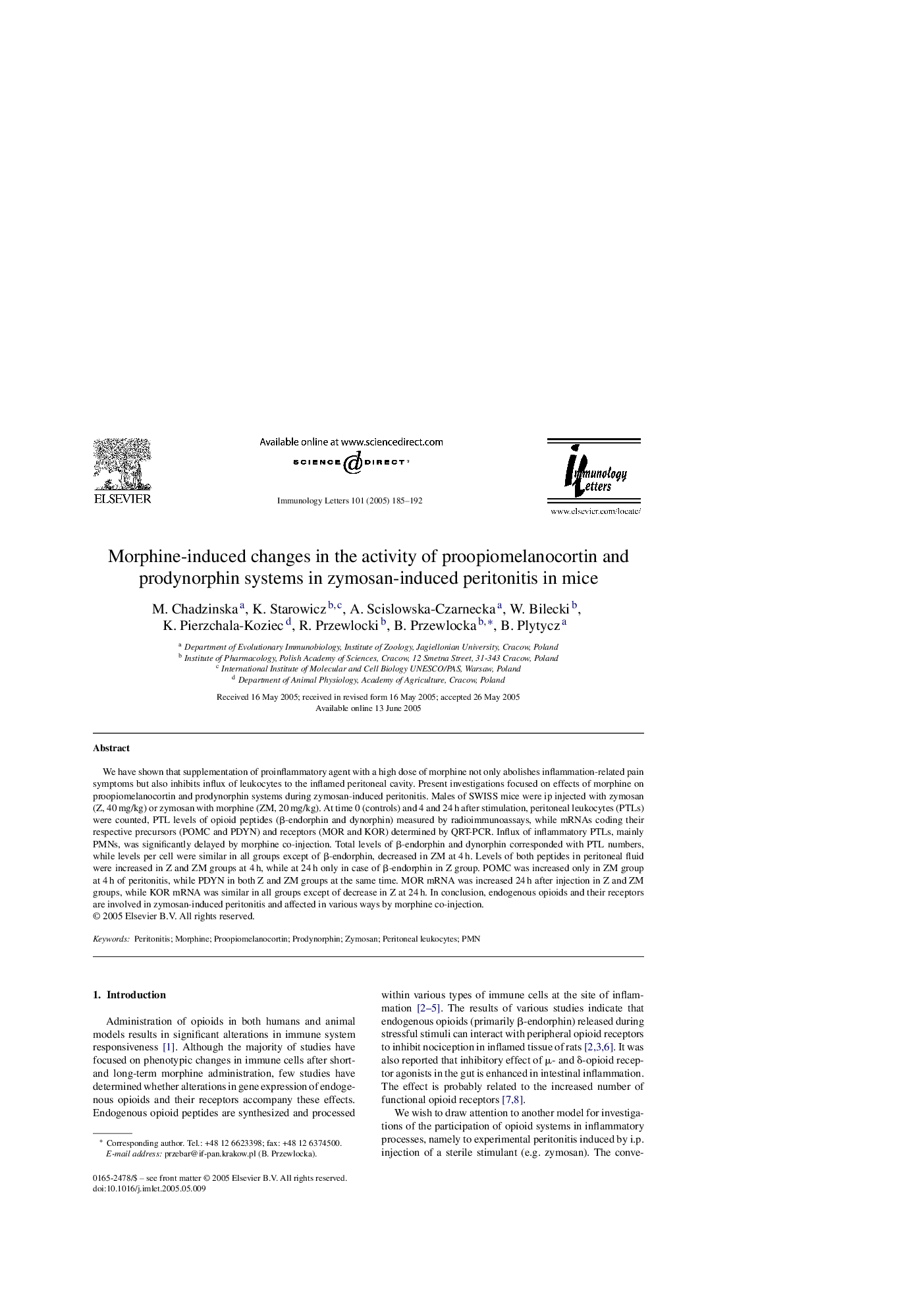| Article ID | Journal | Published Year | Pages | File Type |
|---|---|---|---|---|
| 9266196 | Immunology Letters | 2005 | 8 Pages |
Abstract
We have shown that supplementation of proinflammatory agent with a high dose of morphine not only abolishes inflammation-related pain symptoms but also inhibits influx of leukocytes to the inflamed peritoneal cavity. Present investigations focused on effects of morphine on proopiomelanocortin and prodynorphin systems during zymosan-induced peritonitis. Males of SWISS mice were ip injected with zymosan (Z, 40 mg/kg) or zymosan with morphine (ZM, 20 mg/kg). At time 0 (controls) and 4 and 24 h after stimulation, peritoneal leukocytes (PTLs) were counted, PTL levels of opioid peptides (β-endorphin and dynorphin) measured by radioimmunoassays, while mRNAs coding their respective precursors (POMC and PDYN) and receptors (MOR and KOR) determined by QRT-PCR. Influx of inflammatory PTLs, mainly PMNs, was significantly delayed by morphine co-injection. Total levels of β-endorphin and dynorphin corresponded with PTL numbers, while levels per cell were similar in all groups except of β-endorphin, decreased in ZM at 4 h. Levels of both peptides in peritoneal fluid were increased in Z and ZM groups at 4 h, while at 24 h only in case of β-endorphin in Z group. POMC was increased only in ZM group at 4 h of peritonitis, while PDYN in both Z and ZM groups at the same time. MOR mRNA was increased 24 h after injection in Z and ZM groups, while KOR mRNA was similar in all groups except of decrease in Z at 24 h. In conclusion, endogenous opioids and their receptors are involved in zymosan-induced peritonitis and affected in various ways by morphine co-injection.
Related Topics
Life Sciences
Immunology and Microbiology
Immunology
Authors
M. Chadzinska, K. Starowicz, A. Scislowska-Czarnecka, W. Bilecki, K. Pierzchala-Koziec, R. Przewlocki, B. Przewlocka, B. Plytycz,
